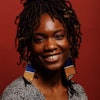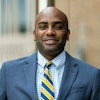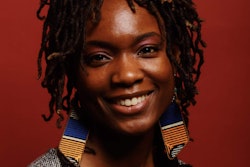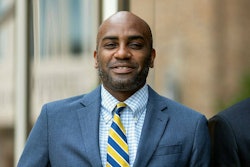Giants in the Classroom
Twenty influential scholars whose work has inspired others and made a significant impact on the academy
Over the past two decades, Black Issues’ writers and editors have featured hundreds, perhaps thousands, of faculty in the magazine’s stories and interviews. Deciding on 20 faculty members whose research, teaching and service set them above their peers in excellence has not proven an easy task. What we accomplished was selecting 20 individuals we believe have had a significant impact in the academy, and whose work has inspired and will continue to inspire others.
DERRICK BELL
An “intellectual warrior in the pursuit of social justice” is how one might describe Derrick Bell, a visiting law professor at New York University. Bell, who became the first tenured Black professor at Harvard Law School in 1971, has brought an uncompromising and insistent voice to the public discussion of race and class in American society. For more than four decades, this lawyer, activist, teacher and writer has challenged critics and informed readers with candid and progressive views. Noted for his professional integrity and courage, Bell has abandoned both a deanship at the University of Oregon and a tenured professorship at Harvard in protest of hiring practices that overlooked minority women faculty candidates.
As a scholar, he has contributed to legal journals published by Harvard, Yale, Columbia, Michigan, Berkeley, Pennsylvania, UCLA and Wisconsin. His most recent book is Silent Covenants: Brown V. Board of Education and the Unfulfilled Hopes for Racial Reform.
JAMES CARMICHAEL
The driving force behind the success Xavier University’s science program has had with getting its Black students into medical school, Carmichael, a physical chemist, gave up prime teaching assignments to instruct freshmen when he joined the university faculty in 1970. A guiding principle of his approach is to push for the success of all his students. “Rather than try to flunk students out, we really try to help them,” he says.
That commitment has won him such awards as the CASE professor of the year in 1990 and McGraw-Hill’s Harold W. McGraw Prize in Education in 1997. Xavier’s national track record in sending the highest numbers of Black students to medical school has inspired other researchers and institutions to set about learning the secret of Xavier’s success.
JAMES COMER
In the push for solutions to close the racial achievement gap in education, the work by Dr. James Comer represents a leading example of the approach that insists families create a strong home learning environment as well as healthy lifestyles for their children as a precondition for academic well being. The Maurice Faulk Professor of Child Psychiatry at Yale University, Comer is the author and founder of the Comer School Development Program — which stresses the interrelationships between parents, educators and the community as the means for successful academic outcomes for children. Recently, the Smithsonian Institution honored Comer with the John P. McGovern Behavioral Science Award on developing influential ideas around community, family and school models to support education. Comer’s work is said to significantly inform the research that’s being done to reduce the racial learning gaps among children prior to their enrollment in kindergarten and first grade.
KIMBERLE CRENSHAW
Representing Anita Hill in 1991 as part of her legal team during the U.S. Supreme Court confirmation hearing of Justice Clarence Thomas, UCLA law professor Kimberle Crenshaw subsequently vaulted into the public spotlight as a leader in the intellectual movement, which has come to be known as Critical Race Theory. Named Professor of the Year by UCLA’s 1991 and 1994 graduating classes, Crenshaw teaches courses in civil rights law, critical race studies and constitutional law. “Law is clearly becoming an arena where the basic fundamental tensions about race and society are being played out,” she says.
CHRISTOPHER EDLEY JR. & GARY ORFIELD
Responding to the attacks on affirmative action policies in the mid- 1990s, this duo of Harvard professors founded the Harvard Civil Rights Project in 1996 to produce research around which policy-makers and advocates could defend such policies. The past few years has seen a steady stream of studies coming from the project around the University of Michigan affirmative action cases and the celebration of the 50th anniversary of the U.S. Supreme Court decision in Brown v. Board of Education. Noting that the studies are showing reverses in school desegregation efforts, Dr. Gary Orfield, who is a professor in the school of education, has called attention to the correlation between the widening of the racial achievement gap and the “resegregation” of the schools — that is, the increasing racial isolation of Blacks and Hispanics. Christopher Edley Jr., a Harvard law school professor who will be dean of University of California-Berkeley’s law school beginning fall 2004, has helped shape the Civil Rights Project to have a role generating information not unlike the expertise he has brought to the national political campaigns and presidential administrations in which he’s worked.
HENRY LOUIS GATES JR.
Despite the clumsy move by Harvard University president Dr. Lawrence Summers to chastise Dr. Cornel West, thus shaking up the Afro-American studies department in the process, chairman Dr. Henry Louis “Skip” Gates Jr. appears to have strengthened Black studies at Harvard rather than seeing it weakened from the controversy that had the “intellectual entrepreneur” contemplating a departure from Harvard. Instead, Gates helped secure the administration’s support to create a combined African and African American Studies department, giving the African studies program a departmental home at Harvard for the first time.
Though his critics have accused him of being elitist, overextended and too flamboyant, Gates has fashioned an unparalleled career in academia, proving adept at fund raising, education-oriented business ownership, journalism, publishing, documentary making and scholarship. His transformation of the once-ailing, badly neglected Harvard Afro-American studies unit over the last decade-and-a-half into a thriving African and African American Studies department is arguably his best-known accomplishment.














